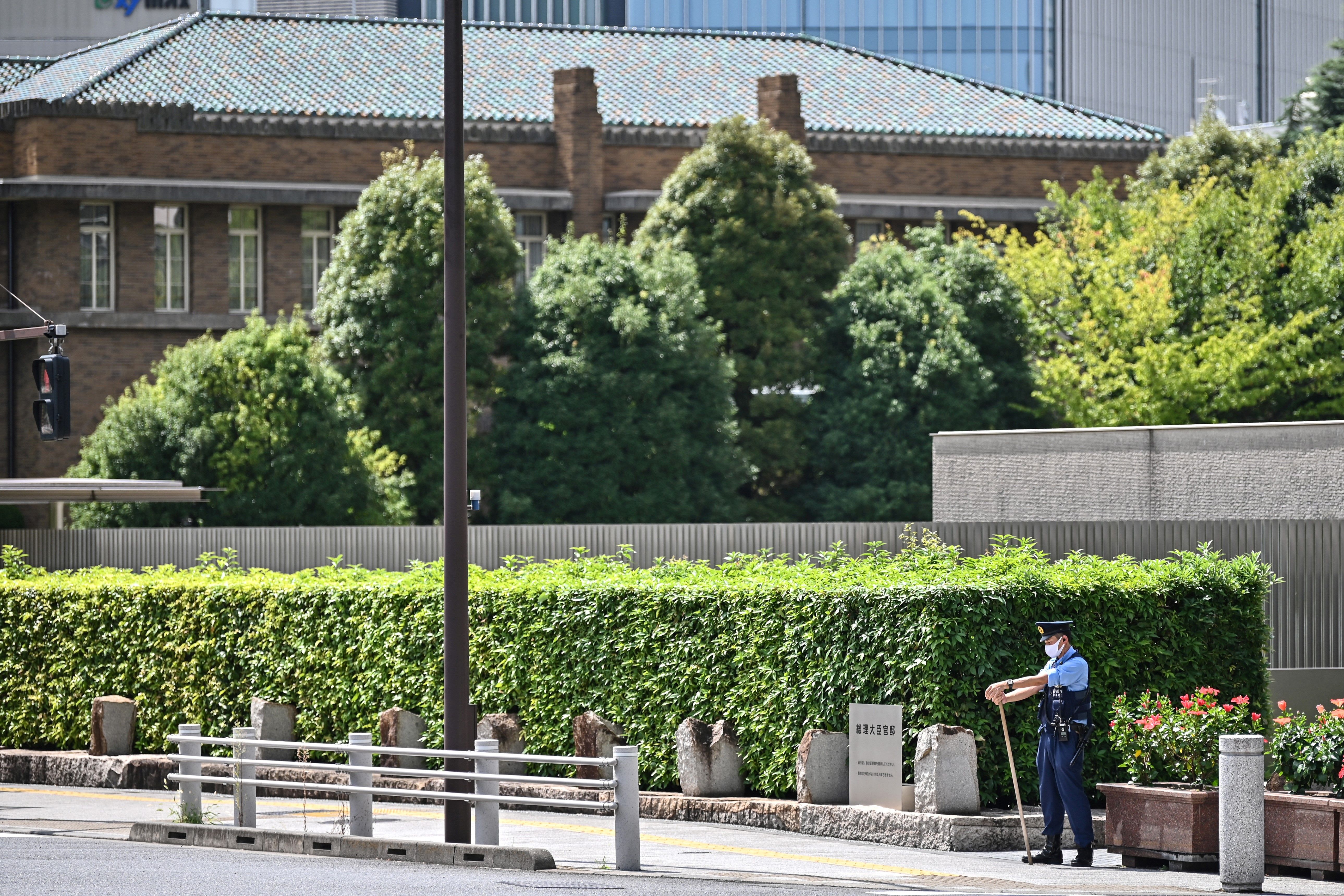Japan is spending £1m a year on an empty prime minister’s mansion. Are ghosts to blame?
Official prime ministerial residence in Tokyo has been mysteriously spurned by successive leaders, prompting questions from opposition over wasted public funds

For almost a decade, successive prime ministers of Japan have declined to live in the official residence in Tokyo, even if it means giving up on one of the main entitlements of the position leading the country.
More than Y160m (£1.1m) is spent every year on upkeep of the art deco mansion next to the prime minister’s office in the capital, according to opposition parties.
The residence, known as the Sori Kotei, has gone unused since 2012, when Japan’s longest serving prime minister Shinzo Abe came to power for the second time.
Mr Abe preferred to make the 15-minute commute from his private home in Tokyo, a decision which over the years fuelled rumours and speculation ranging from the mundane - that the capacious residence lacked home comforts - to the supernatural. Several ghost stories exist relating to the mansion, and the volume of rumours was such that Mr Abe’s office released an official statement insisting he was “unaware” of the home’s ghoulish reputation.
Now, Japan’s prime minister Yoshihide Suga is facing pressure from the opposition over his decision to follow in Mr Abe’s footsteps (or lack thereof). Mr Suga also has a home a short commute from his office and still has not moved into the Sori Kotei, six months after coming to power.
Yoshihiko Noda, who served as prime minister from 2011 to 2012 and was the last person to live in the residence, raised the issue in parliament last month after a powerful 7.3 earthquake struck, causing structural damaged to northeast Japan. He pointed out that it took 20 minutes for the prime minister to reach his office for an emergency meeting.
Read more:
“What would happen if there was an earthquake directly beneath Tokyo?” Mr Noda, now an opposition MP, asked. “The traffic would probably be impassable. It would take more than 20 minutes. But to walk from the prime minister’s residence to the office would take zero minutes.
“Even though it sits empty, the annual maintenance and upkeep comes to Y160 million. I cannot understand why you do not move in.”
While we still don’t know the full story behind Mr Suga’s reluctance to take up the residence, the ghost stories about the mansion date back many years, and are tied to the bloody history and a number of events that took place on the land where the building was erected.
Speaking to The Independent, Dr Rajaram Panda, an expert on Japanese affairs at the Nehru Memorial Museum and Library in Delhi, explained that it was rumoured Junichiro Koizumi invited a Shinto priest to perform an exorcism at the house when he was prime minister in 2001.
“Since [then] the belief has gained currency, and Japanese media and the opposition have raised the issue as successive prime ministers shied away from staying in that house,” Mr Panda said.
The house’s bloody history begins in 1932 when a group of naval officers assassinated then-prime minister Tsuyoshi Inukai and attempted to stage a military coup. Another coup was attempted four years later in which five people were shot dead at the house, including the brother-in-law of then prime minister Keisuke Okada.
The building is said to still have physical reminders of this history, including historic bullet holes and evidence of fire damage that have been preserved.
Mr Koizumi’s predecessor, Yoshirō Mori, is reported to have once confided to an acquaintance that he was awoken at the property by the ghostly sound of soldiers marching.
More prosaic explanations for the residence’s lack of use have been offered - some political commentators have suggested the mansion is simply seen as cavernously large and too difficult to manage compared to the more compact homes Japanese people are used to.
But still the ghost stories persist - and Mr Suga has yet to provide an explanation for shunning the mansion to placate the parliamentary budget committee.
Mr Panda said it was unfortunate that political figureheads, who are supposed to lead by example, were not making any efforts to eradicate these unscientific beliefs and fears.
“But the truism is that in Japan, modernity and traditions coexist and each has its own space and gets the desired attention, respect and recognition,” Mr Panda said.
Join our commenting forum
Join thought-provoking conversations, follow other Independent readers and see their replies
Comments
Bookmark popover
Removed from bookmarks